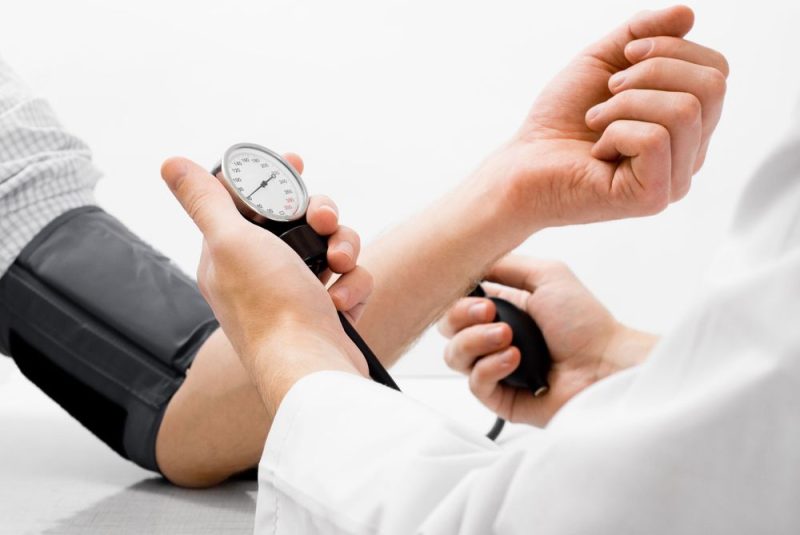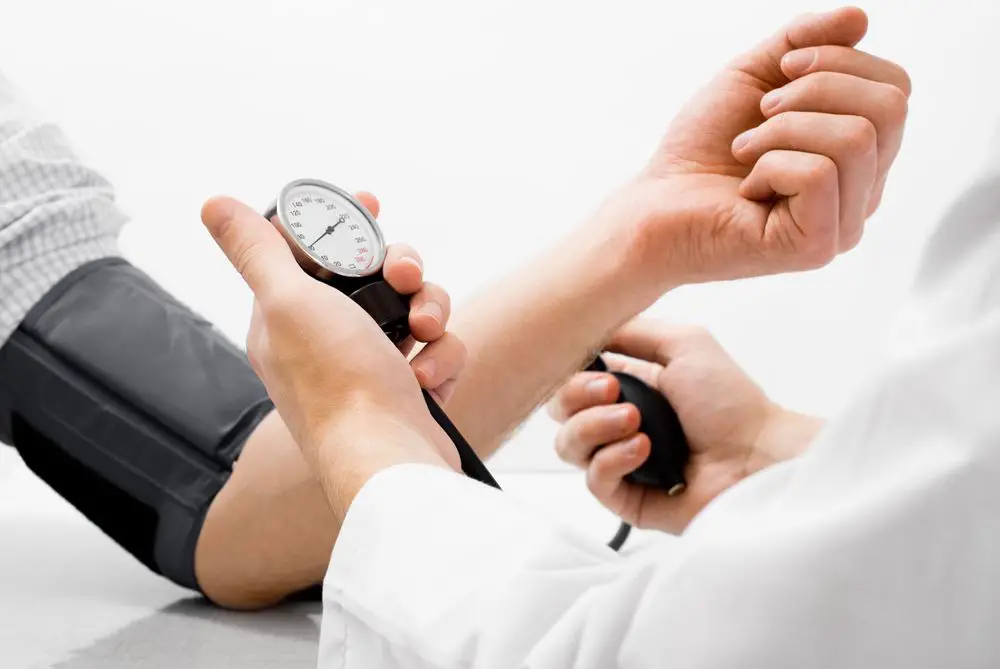Most people associate high blood pressure, or hypertension, with lifestyle factors such as diet, stress, or genetics. However, an often-overlooked trigger may be infection—from bacterial and viral illnesses to chronic inflammation caused by hidden pathogens.
In recent years, researchers have found intriguing evidence that infections can influence blood pressure levels, both temporarily and in the long run. Understanding this connection is vital, as it could change how we prevent and treat hypertension.
This article explores the relationship between infection and high blood pressure in detail—covering how infections affect your cardiovascular system, which infections are most linked to hypertension, and how to manage your blood pressure if you’re recovering from an illness.
Understanding High Blood Pressure

What Is High Blood Pressure?
High blood pressure occurs when the force of blood pushing against your artery walls remains consistently elevated. Over time, this strain damages arteries and vital organs, including the heart, kidneys, and brain.
Blood pressure is measured in millimeters of mercury (mmHg) and recorded with two numbers:
- Systolic pressure (top number): pressure when the heart beats.
- Diastolic pressure (bottom number): pressure when the heart rests between beats.
A normal reading is usually below 120/80 mmHg. Consistently higher readings may indicate hypertension, which increases the risk of heart disease, stroke, and other complications.
Common Causes of Hypertension
The most common causes include genetics, obesity, high salt intake, smoking, stress, and sedentary lifestyle. However, secondary causes—such as hormonal imbalance, kidney disease, and infections—also play a significant role in some cases.
The Link Between Infections and Blood Pressure
Can an Infection Really Cause High Blood Pressure?
Yes, infections can temporarily or chronically affect blood pressure. When the body detects an invading pathogen, the immune system activates inflammatory responses that can alter how blood vessels constrict or relax.
This process can increase blood pressure temporarily during an acute infection or contribute to long-term hypertension if inflammation persists.
How Inflammation Impacts Blood Pressure
Inflammation is a natural defense mechanism, but it can also harm blood vessels if prolonged. When immune cells release cytokines and other chemicals to fight infection, these substances can:
- Narrow blood vessels, making it harder for blood to flow.
- Increase heart rate and cardiac output.
- Alter kidney function, leading to fluid retention and higher blood pressure.
Chronic inflammation caused by infections such as Helicobacter pylori, Chlamydia pneumoniae, or viral hepatitis may lead to vascular stiffness and persistent hypertension.
How Infections Affect the Cardiovascular System
1. Direct Effects on Blood Vessels
Some pathogens directly damage the endothelium—the inner lining of blood vessels. This damage reduces the vessels’ ability to expand, forcing the heart to pump harder and increasing blood pressure.
For instance, bacterial endotoxins can impair nitric oxide production, which is essential for blood vessel dilation.
2. Immune System Overreaction
When the immune system overreacts, it may produce excessive inflammation, known as a “cytokine storm.” This can raise blood pressure dramatically and even cause vascular injury. Such responses are observed in severe viral infections, including influenza and COVID-19.
3. Kidney Involvement
The kidneys regulate blood pressure by controlling fluid balance and sodium levels. Many infections, particularly urinary tract or kidney infections, disrupt this balance, causing the body to retain more fluid and sodium, leading to increased pressure in the arteries.
4. Autonomic Nervous System Response
During infection, the sympathetic nervous system—the body’s “fight or flight” mechanism—becomes active, releasing stress hormones like adrenaline. These hormones increase heart rate and cause temporary spikes in blood pressure.
Types of Infections Linked to High Blood Pressure
1. Respiratory Infections
Acute respiratory infections, such as pneumonia or influenza, can raise blood pressure due to inflammation, fever, and stress responses. Research also suggests that chronic respiratory infections may damage vascular tissues and increase long-term hypertension risk.
2. Urinary Tract Infections (UTIs)
UTIs, particularly kidney infections (pyelonephritis), can cause fluid and electrolyte imbalance, leading to temporary hypertension. Chronic UTIs may also trigger systemic inflammation affecting cardiovascular health.
3. Viral Infections (Including COVID-19)
COVID-19 has revealed how viruses can affect blood pressure and heart function. The SARS-CoV-2 virus attaches to ACE2 receptors, which play a key role in blood pressure regulation. Disruption of these receptors can result in increased vascular resistance and higher pressure.
4. Bacterial Infections
Certain bacteria, such as Helicobacter pylori (linked to stomach ulcers) and Chlamydia pneumoniae, have been associated with vascular inflammation. Studies show that people with chronic bacterial infections may have a higher incidence of hypertension.
5. Gum Disease (Periodontal Infection)
Chronic gum disease is another surprising contributor. Oral bacteria can enter the bloodstream, causing systemic inflammation that contributes to arterial stiffness and high blood pressure.
Short-Term vs. Long-Term Blood Pressure Changes
Temporary Elevation During Acute Infection
When you have a fever or infection, your body releases stress hormones to maintain oxygen supply to vital organs. This often causes temporary spikes in blood pressure that return to normal once the infection resolves.
Long-Term Effects of Chronic Infection
Chronic infections can lead to persistent vascular inflammation, arterial stiffness, and endothelial dysfunction—factors that contribute to long-term hypertension. People with chronic viral or bacterial infections are more likely to develop sustained high blood pressure.
Research and Scientific Evidence
Several studies highlight the connection between infection and hypertension:
- A 2019 study in Hypertension Research found that individuals with chronic Helicobacter pylori infection had higher average blood pressure readings.
- Research published in The Lancet reported that inflammation markers from infections correlate with higher cardiovascular risk.
- Studies during the COVID-19 pandemic revealed that post-infection patients often experience long-term blood pressure fluctuations due to vascular and renal changes.
While more research is needed, the evidence supports the idea that infections—especially chronic or severe ones—can be a contributing factor to hypertension.
Who Is Most at Risk?
Certain individuals are more susceptible to blood pressure spikes due to infection, including:
- People with pre-existing hypertension or heart disease
- Those with weakened immune systems
- Individuals with chronic inflammatory conditions
- Elderly adults, whose vascular systems are less resilient
- People with obesity or diabetes, which amplify inflammatory responses
Symptoms to Watch For
If your blood pressure rises during or after an infection, you may notice symptoms such as:
- Persistent headache
- Dizziness or blurred vision
- Shortness of breath
- Chest discomfort
- Rapid or irregular heartbeat
- Swelling in the legs or feet
These signs warrant medical attention—especially if you already have hypertension or heart disease.
How to Manage Blood Pressure During an Infection
1. Stay Hydrated
Dehydration can thicken blood and make the heart work harder. Drink plenty of water, herbal teas, or electrolyte-rich fluids during an infection to help maintain normal circulation.
2. Rest and Allow Recovery
Resting supports immune function and prevents unnecessary cardiovascular stress. Overexertion while sick can worsen inflammation and elevate blood pressure.
3. Monitor Blood Pressure Regularly
If you have a blood pressure monitor at home, track your readings during illness and recovery. Report significant or prolonged increases to your doctor.
4. Manage Fever Safely
High fever elevates heart rate and blood pressure. Use doctor-approved fever reducers like acetaminophen, and avoid excessive caffeine or salt during illness.
5. Follow Prescribed Treatments
Always complete antibiotic or antiviral treatments as directed. Untreated infections can become chronic, increasing your risk of long-term vascular damage.
Preventing Infection-Related Hypertension
Maintain Good Hygiene
Frequent handwashing, oral hygiene, and wound care reduce infection risks that could indirectly raise blood pressure.
Boost Immune Function
Eat a nutrient-rich diet, get enough sleep, exercise moderately, and manage stress. A strong immune system helps your body fight infections efficiently without triggering chronic inflammation.
Treat Chronic Infections Promptly
Conditions such as sinusitis, gum disease, or urinary infections should be addressed early to prevent systemic inflammation from affecting your cardiovascular system.
Regular Medical Checkups
Routine blood pressure and blood tests can catch early signs of inflammation or infection-related hypertension, allowing for timely intervention.
When to See a Doctor
You should consult your doctor if:
- Your blood pressure remains elevated after recovering from an infection.
- You experience symptoms like chest pain, severe headache, or vision changes.
- You have repeated infections or slow healing.
Your physician may run blood tests, kidney function tests, or imaging studies to determine whether infection or inflammation is affecting your cardiovascular system.
Can Treating Infection Lower Blood Pressure?
Yes, in many cases, effectively treating an infection can help stabilize blood pressure. For instance, antibiotic treatment for H. pylori or anti-inflammatory therapy for viral infections has been shown to reduce vascular stress.
However, if hypertension persists, it may require lifestyle changes or medication. Always follow medical advice and avoid self-medicating with antibiotics or blood pressure drugs.
Lifestyle Tips for Better Blood Pressure Control
Even if an infection contributed to your high blood pressure, long-term management still depends on healthy habits:
- Eat a low-sodium, heart-healthy diet rich in fruits and vegetables.
- Exercise moderately once your infection has resolved.
- Avoid smoking and limit alcohol intake.
- Practice relaxation techniques such as deep breathing or yoga.
These steps help reduce overall inflammation and strengthen your cardiovascular system against future infections.
Conclusion
While infections are not the most common cause of high blood pressure, scientific evidence shows they can influence blood pressure levels both temporarily and chronically through inflammation, immune responses, and organ stress.
Understanding this connection empowers you to take a proactive approach—by preventing infections, supporting your immune health, and monitoring blood pressure closely during illness.
If your blood pressure remains high after an infection, consult your healthcare provider for a proper evaluation. Addressing both the infection and the resulting vascular changes can significantly improve your long-term cardiovascular health.
Disclaimer: This article is for informational purposes only and does not replace professional medical advice. Always consult a qualified healthcare provider regarding diagnosis or treatment of any medical condition.



